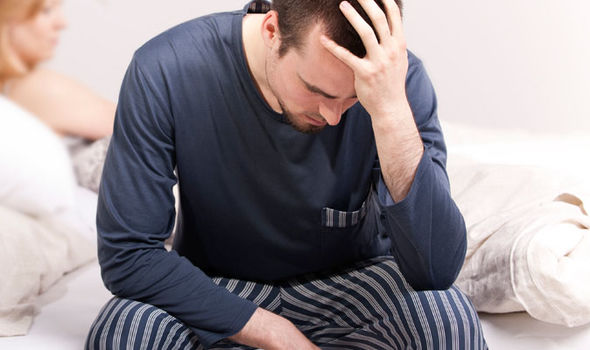Literally meaning a lack of power, impotence is most commonly related to the inability of a male to achieve and maintain an erection for the purpose of satisfactory sexual intercourse.
Causes
Any illness, especially if associated with general weakness such as anemia or malnutrition may predispose to impotence. It may also be caused by damage to or diseases of the nerves or parts of the spinal cord that control erection. The most common predisposing illness is diabetes mellitus in which inflammation of the nerves produces a degree of impotence in at least half of the male diabetics over the age of 50. Along with the benefits, proper information should be available about the side-effects of hyper male force pills. The age of the person will be communicated to the experts for the availability of medication. The risk or danger to the life can be there if the age is above 60 years. So, due attention should be paid to the fact.

The nerve fibers that control erection may also be affected by spinal injuries, tumors and multiple sclerosis. Impotence is infrequently caused by endocrine abnormalities and occasionally by diseases of the thyroid gland, the pituitary gland and the testes. It may also occur as an unwanted side-effect of the use of certain tranquilizers, anti-depressants, some anti-hypertensive (high blood pressure) medication and alcohol.
By far the most common causes of impotence, accounting to over 90 % of cases are psychological problems such as anxiety about the ability to perform adequately, fear and guilt. Fear of sexual failure may in turn lead to even greater anxiety, setting up a vicious cycle. The sexual performance of an individual may be impaired by anger towards a sexual partner as in marital conflict, disinterest or a partner’s apparent lack of response to sexual advances. Also, males who achieve sexual satisfaction through unconventional forms of sex are less likely to do so in normal heterosexual activity.
In some cases, a man who is unable to engage in satisfactory sexual intercourse with his wife or regular partner may be quite potent with someone else.
It is thought that in some cases impotence is caused by failure to resolve subconscious erotic attachments to the mother, who is subconsciously perceived as the woman with whom the subject is impotent.
Treatment
The initial treatment should deal with any definitive disease, including depression that is responsible for the problem. Hormone treatment is not recommended unless there is a specific deficiency.

If the problem involves a breakdown in the relationship between two people concerned, professional counseling may be of some help in resolving it. In this regard it is important to establish good communication, trust and confidence within the relationship. This may then make it possible to discuss and deal with feelings of hostility, disinterest, doubts about the partner’s love and other problems.
Behavior therapy may be used to decrease the anxiety associated with intercourse. In most cases, with appropriate treatment, the outlook is good.

